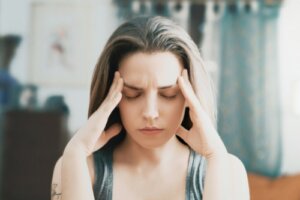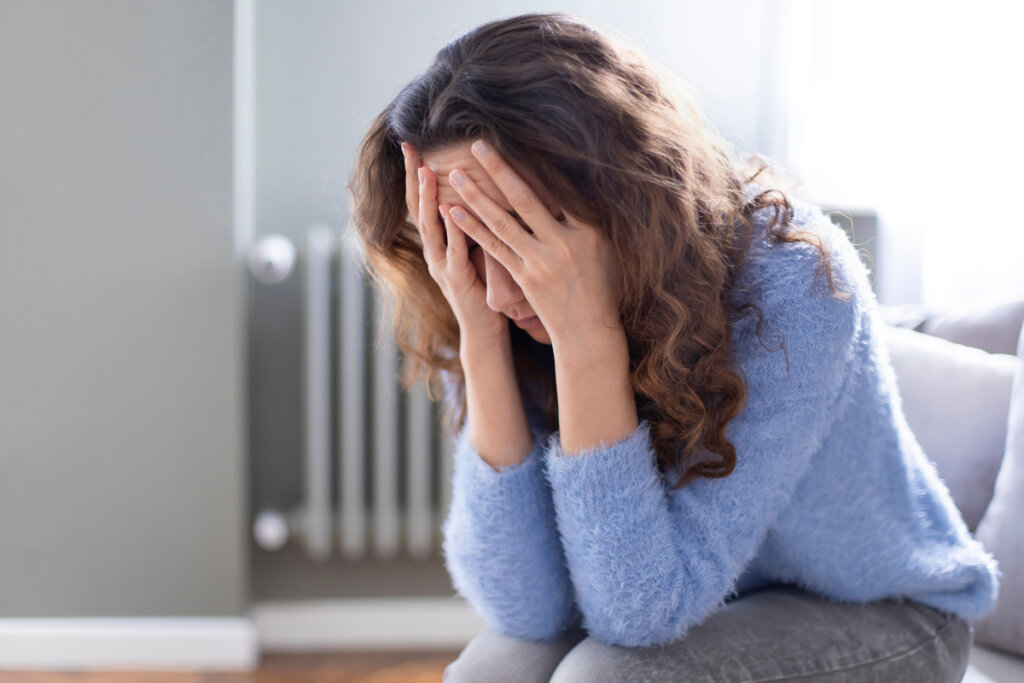Stresslaxing: When Relaxing Causes You Stress


Written and verified by the psychologist Sara González Juárez
You finish a long day at work and get on a packed subway train to go home. When you get there, you take the dog out. Night falls, and you want to put on a series and relax, but the moment you sit on the couch all the negative thoughts of the day reappear and you feel even more overwhelmed. If this rings a bell, you could be experiencing stresslaxing.
This recently coined word refers to the anxiety induced by trying to relax. Although it seems contradictory, 30-50 percent of people who try to train themselves in relaxation techniques suffer more symptoms of stress. Therefore, it’s not such an unusual phenomenon. Some patients even reported experiencing physical symptoms, such as palpitations and sweating.
Life today is aggressive and dizzying and affects the natural rhythms of your body. As you can imagine (and perhaps experience), going from 100 to 0 isn’t easy in the midst of this kind of maelstrom. In this article, we’re going to explain a little more about stresslaxing and what you can do to avoid it.

What lies behind stresslaxing?
If you get stressed when you’re trying to relax, you need to rethink the situation. Below, are some of the possible causes of stresslaxing and its effects.
1. Denial
Denial of stress is one of the most common escape routes, but one of the least effective. Although in short periods it helps to settle and order your emotions naturally (as in the death of someone close), using it on a recurring basis is really harmful.
Sometimes, you deny your feelings of stress. It’s not a voluntary affirmation, but an unconscious way of moving forward. You create the feeling that the best way to end your stress is to finish all the tasks that are causing it. However, these tasks never end, so you end up in a vicious circle.
2. Physiological activation
As you may already know, stress is a natural response to a dangerous situation. Thanks to the sympathetic nervous system, your body responds to the threat. While the parasympathetic nervous system returns you to your normal state (homeostasis). However, when stress is prolonged, physiological activation is too, causing you health problems.
Therefore, your body doesn’t automatically relax when you find yourself with some free time. In fact, if the norm for you is stressing to complete all your daily tasks, your body sees relaxation as yet another chore. You tell yourself that you have to relax as you have so much work tomorrow but, on the other hand, if you do relax, you’ll only end up having to do double the work. Does this sound familiar to you?
3. Self-demand
Anxiety and stress are waiting just around the corner if you demand more than you can give. If you work when you’re off sick, check your emails on vacation, or go out with your partner despite being desperately tired, you’re a victim of yourself. It’s due to the unconscious idea that you have to give your all at all times.
When you finally realize that moments of relaxation are necessary, they end up becoming one more obligation. Thus, your mind and body continue to strive to meet the ‘goal’ of relaxing, and stresslaxing appears.
4. Social pressure and stresslaxing
Social pressure is contradictory. You’re urged to take care of your health but also to be productive to the maximum and to be the happiest, most beautiful, and most highly committed individual in the world.
However, you know that complying with all of this is impossible. This isn’t only because of its intrinsic contradiction but also because it’s physically impossible to work 12 hours a day, go to the gym, take care of your children, volunteer, and keep your house looking reasonably tidy. At least, not without exploding.
These demands can turn leisure into just one more task to fulfill. Moreover, if you don’t have a moment for yourself, you’re a workaholic. You must find a moment to relax and try to balance your life.

What to do if you’re guilty of stresslaxing
When even relaxing causes you stress, it’s time to see a psychologist. There, you’ll be able to take a break and explore your own reasons for stresslaxing as well as acquire resources to combat it. Solutions can range from changing jobs to developing a self-care routine, training in relaxation techniques, or medical treatment.
Finally, the concern to free yourself from stress can become one more reason for your feelings of anguish. To manage it, in the midst of the frenzy imposed on you, you must become fully aware of yourself, but also learn to rely on others.
“In a world where we are singled out as the only architects of our destiny, let’s stop being islands.”
-Anonymous-
All cited sources were thoroughly reviewed by our team to ensure their quality, reliability, currency, and validity. The bibliography of this article was considered reliable and of academic or scientific accuracy.
- Heide, F. J., & Borkovec, T. D. (1983). Relaxation-induced anxiety: Paradoxical anxiety enhancement due to relaxation training. Journal of Consulting and Clinical Psychology, 51(2), 171–182. https://doi.org/10.1037/0022-006X.51.2.171
- Dijkstra, M. T., & Homan, A. C. (2016). Engaging in rather than disengaging from stress: Effective coping and perceived control. Frontiers in psychology, 7, 1415.
- Dalpé, J., Demers, M., Verner-Filion, J., & Vallerand, R. J. (2019). From personality to passion: The role of the Big Five factors. Personality and Individual Differences, 138, 280-285.
- de Bruin, W. B., Parker, A. M., & Strough, J. BRIEF REPORT Choosing to be happy? Age differences in ‘maximizing’decision strategies and experienced emotional well-being.
- Oró Palau, P. (2016). Efectos de un entrenamiento basado en mindfulness (atención o conciencia plena) sobre la salud psíquica y las habilidades de autocuidado y cuidado de otros en estudiantes de medicina (Doctoral dissertation, Universitat de Lleida).
- Kim, H., & Newman, M. G. (2019). The paradox of relaxation training: Relaxation induced anxiety and mediation effects of negative contrast sensitivity in generalized anxiety disorder and major depressive disorder. Journal of affective disorders, 259, 271-278.
This text is provided for informational purposes only and does not replace consultation with a professional. If in doubt, consult your specialist.








